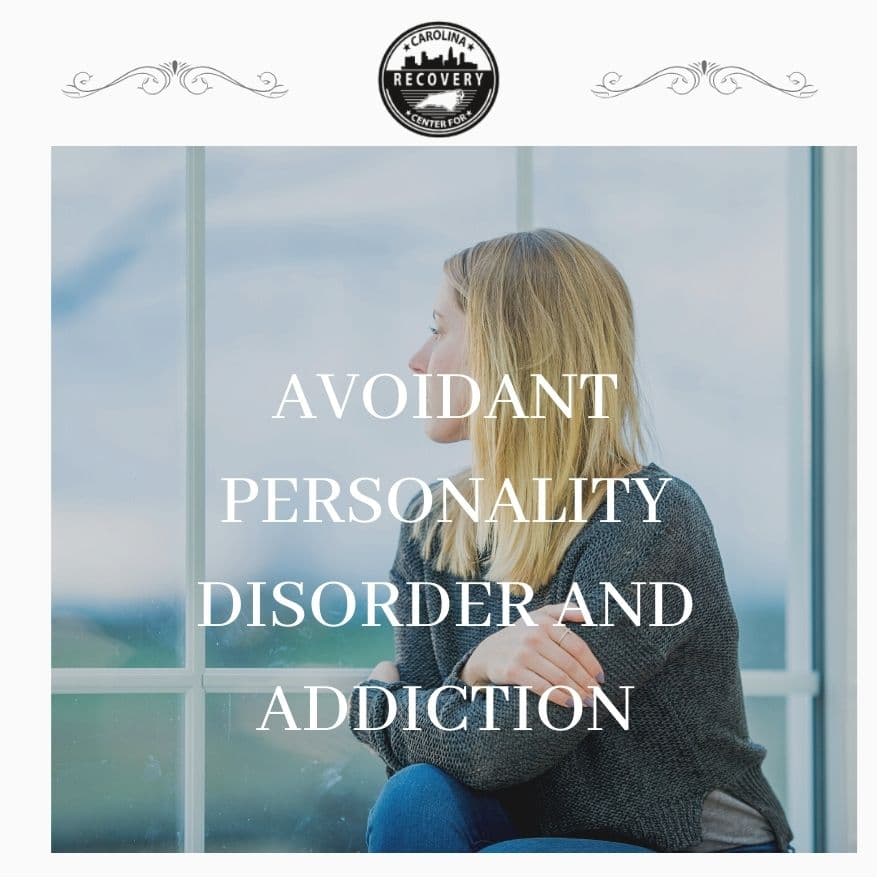Avoidant Personality Disorder and Addiction: Comorbidity and Treatment

Medically Verified: 2/1/24
Medical Reviewer
Chief Editor

All of the information on this page has been reviewed and verified by a certified addiction professional.
Avoidant personality disorder and addiction are two closely related conditions that can be debilitating for those suffering from them. Avoidant personality disorder, also referred to as APD, is a long-term personality disorder characterized by hesitancy in social situations, extreme fear of rejection, and social isolation. Although these individuals isolate themselves from the world around them, they still desire relationships and intimacy. As a result, these individuals may abuse drugs or alcohol as a means of coping with their feelings of inadequacy.
What is Avoidant Personality Disorder (APD)?
Avoidant personality disorder (APD) is a personality disorder that is characterized by feelings of severe social inhibition or inadequacy and extreme sensitivity to criticism and rejection. APD is more than being shy or socially awkward–it is a serious condition that causes major problems in a person’s day-to-day life as well as their ability to maintain relationships.[1]
Symptoms of APD include:
- Self-isolation
- Low self-esteem
- Avoiding work, school, or social activities out of fear of rejection and criticism
- Difficulty having close friends
- Reluctancy to get involved with new friends or people
- Shyness in social situations
- Restraint for intimate relationships
- Feeling as though one cannot appeal to others
- Unwilling to try new things or take risks due to fear of judgment or criticism
This condition can feel crippling and often co-occurs with other mental health conditions like depression or anxiety. Although people with APD often crave social connections and relationships, they feel unable to obtain them. This can lead to feelings of disappointment or unhappiness. APD can also exist alongside other personality disorders like a dependent personality disorder or borderline personality disorder.
The Relationship Between Avoidant Personality Disorder (APD) and Substance Abuse
Substance abuse issues and personality disorders are closely related. Nearly 46% of patients who seek treatment for substance abuse have a personality disorder, and of that 46%, 8% of them suffered from an avoidant personality disorder.[2] Due to the severe nature of APD, it is easy to see why some individuals turn to drugs and alcohol to cope.
Many people rely on alcohol and other substances to help them relax and manage their emotions. However, people with personality disorders often experience emotions in different ways. People with APD may drink in surplus to calm their nerves in new social situations. They may abuse drugs to fill the void left from a lack of social connectivity. Another reason why people with APD use substances may be to provide themselves with some sense of happiness and excitement.
Misuse of drugs and alcohol can worsen a person’s APD symptoms. People with avoidant personality disorder who abuse substances for a long time may develop an addiction that is difficult to beat. Moreover, these individuals often find it easy to hide their addiction(s) due to the fact that they isolate themselves a lot. And, any embarrassment linked with a person’s substance abuse can exacerbate their avoidant personality disorder symptoms.
Treatment for Avoidant Personality Disorder (APD) and Addiction
People who struggle with avoidant personality disorder and substance abuse issues can benefit greatly from treatment. The problem is these individuals are often very resistant to accepting help because therapy and treatment are social activities. Since these individuals are deeply affected by fears and concerns regarding social situations, they may go to any lengths to avoid uncomfortable situations–including treatment.
People who need treatment for avoidant personality disorder and addiction are usually best in residential care. In this type of supportive environment, patients are automatically submitted to a therapeutic and safe setting. They are also more likely to attend therapy sessions while living in a residential setting.
Treating APD requires behavioral or talk therapy. The first and most important step, however, is developing a healthy, trusting, and therapeutic relationship between the patient and therapist. An established relationship will help the patient open up more in therapy and avoid dropping out of treatment early.
Therapy should focus on helping individuals manage their thoughts effectively and assimilate into social situations. It should teach these individuals how to do so without relying on drugs and/or alcohol. Patients should also be educated on the topics of addiction, recovery, and healthy coping mechanisms. Treatment is most effective when care is provided for avoidant personality disorder and addiction simultaneously.
Start Dual Diagnosis Treatment in North Carolina Today
If you or someone you love is struggling with a substance abuse issue and a co-occurring mental health issue like avoidant personality disorder, our dual diagnosis program in North Carolina is here to help. Our licensed and certified facility provides comprehensive treatment for co-occurring disorders and we can help you or a loved one improve your quality of life.
The first step towards a better tomorrow is picking up the phone and asking for help. Call now to get started.
References:

